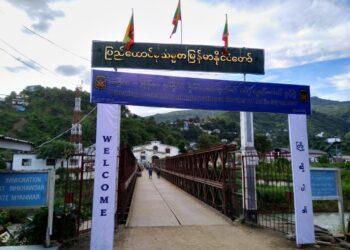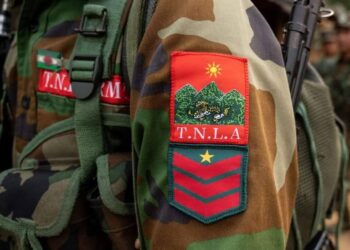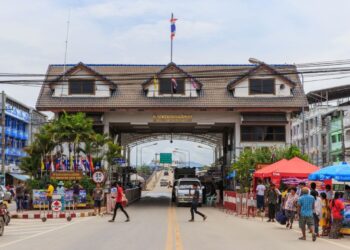January 21, 2024, witnesses a surge in conflict as the Kachin Independence Army (KIA) captures Mabai city in North Shan, mirroring the Arakan Army’s (AA) incremental advances in Rakhine. The intensification of hostilities extends to regions across North Shan and Kachin provinces, with ongoing attacks disrupting peace and stability in the area.
In Rakhine, the AA continues its relentless campaign, seizing city after city and expanding its territorial control. Concurrently, in North Shan and Kachin, the KIA and the People’s Defense Force (PDF) launch coordinated offensives, targeting strategic regions and key military installations.
The city of Mabai, situated on the outskirts of North Shan, Kachin, Sagaing, and Mandalay, becomes the latest battleground as rival factions vie for dominance. As the KIA secures control over Mabai, it gains access to crucial supply routes, facilitating the transportation of weapons and resources to revolutionary strongholds across the region.
Efforts to assert control extend beyond Mabai, with clashes erupting in towns such as Htee Chian in Sagaing State and Nantphat in Northern Shan State. These areas hold strategic significance for the military council, leading to fierce resistance against revolutionary forces.
Despite facing staunch opposition from the military council, revolutionary groups remain undeterred in their pursuit of territorial gains and strategic advantages. The recent downing of a military helicopter in Nantphat Khar city underscores the escalating tensions and the high stakes involved in the conflict.
As battles rage on, civilians in affected areas bear the brunt of the violence, grappling with displacement, loss, and uncertainty. The humanitarian impact of the conflict underscores the urgent need for diplomatic intervention and concerted efforts to alleviate the suffering of innocent civilians trapped in the crossfire.
Amidst the chaos and upheaval, the path to peace remains elusive, with both sides entrenched in a cycle of violence and retaliation. As the conflict escalates, the international community must prioritize dialogue and negotiation to de-escalate tensions and pave the way for a sustainable resolution that ensures the safety and well-being of all stakeholders in the region.






